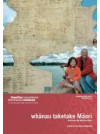Families Commission report, Whānau Taketake Māori: Recessions and Māori resilience, promotes an understanding of the impact that recessions have on Māori that can only be understood in the full context of history, cultural values and practices.
The impact of the current and past recessions on individual Māori and whānau has been dire. It has been exacerbated by deep-seated structural inequalities that affect job loss for Māori. This in turn has severe impacts on mental health, and the ability to afford safe and healthy food, and affordable and healthy housing.
This is demonstrated not only in statistical evidence, but also in the stories of those who have personally experienced these impacts. The story of the Pātea Māori Club, for example, responding to the devastating closure of Pātea’s freezing works in the 1980s, symbolises the strength of whānau and of collective responses in crisis. Cultural and social resources supported resilience when external economic constructs failed to protect a community. Stories such as these eloquently illustrate this report and support a perspective that resilience comes from a foundation of strength, the strength of whānau, hapū and iwi.
While, Māori as individuals were significantly impacted upon by the economic reforms of the 1980s, it was also a period of resilience and development as hapū, iwi, Māori land owners and Māori organisations grew in strength. This growth was both commercial and political whereby these organisations sought to safeguard the collective assets of the people.
An overarching theme was evident in this report: that supporting whānau to achieve a strong base of assets and resources – cultural, social, economic and environmental – in turn supports Māori, both individually and collectively, to strengthen their resilience towards the impacts of colonisation and recession.
This report was prepared by Kahukore Baker and is part of a suite of work produced by the Families Commission to resource the Whānau Strategic Framework 2009–2012.
Purpose
As part of the role of the Families Commission, this report provides a base to enable the Commission to work with other government departments and relevant private sector stakeholders to:
- assist other departments to understand ‘whānau’ as distinct from ‘family’
- support mainstream government departments to develop frameworks that can assist the implementation and delivery of Whānau Ora across the social sector agencies; this includes research and development on the implementation of whānau-centred practices
- identify potential structural and behavioural changes that may be required across the social sectors to enable the implementation of whānau-based initiatives.
Through these avenues the Commission can support and advocate for the development of crucial pathways by which whānau can maximise their social, cultural, economic and environmental resources for the benefit of whānau and Māoridom as a whole.
Methodology
The Commission carried out a review of selected literature of key turning points in the Treaty relationship and an environmental scan of existing social, economic, structural and cultural issues that impact on whānau, within a kaupapa Māori context. Kaupapa Māori research and development is grounded in Māori knowledge, values, beliefs and practises, that validate being Māori in today’s world. Consequently this report provides commentary based on both quantitative data and qualitative narrative from the voices of those who lived through these events. A key theme is identified from this process; it is that access to and maximisation of cultural, social, economic and environmental resources by whānau strengthens resilience and is critical for whānau wellbeing. (Durie, 2003, p. 70)
Key Results
- The impact of the current and past recessions on individual Māori and whānau has been dire. It has been exacerbated by deep-seated structural inequalities that affect job loss for Māori. This in turn has severe impacts on mental health, and the ability to afford safe and healthy food, and affordable and healthy housing. However, collectively owned assets such as Māori Land Trusts are relatively secure. In the long term, the low debt-to-equity model characteristic of many Māori businesses has been a protective factor in recessionary times, safeguarding the collective assets of the people.
- Māori resilience has always been evident in the face of adversity, at all levels of Māori society. This report supports the view expressed by Durie (2003, p. 70) that resilience for Māori is sourced in access to and best use of cultural, social, economic and environmental resources by whānau, hapū, iwi and Māori.
- Lessons have been learnt in the changing Crown-Māori partnership relationship, which is evolving in maturity. A range of partnership arrangements between iwi/Māori, government departments and private sector stakeholders seek to accelerate the development of whānau wellbeing.
In this paper, ‘resilience’ is understood at the interpersonal, individual level; at the level of cultural institutions of whānau, hapū and iwi; and in the wider structural pan-Māori and multi-tribal groups. Resilience needs to be considered at all these levels to understand the interplay of factors that support whānau in building resilience. The Families Commission will then be better placed to understand the most appropriate ways to support whānau resilience.

